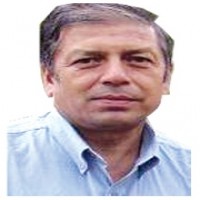Ensure Fair Supply Of COVID-19 Vaccines
Hira Bahadur Thapa
The swift development of effective COVID-19 vaccine is one of the few bright points of pandemic. Since the UK administered the first fully tested vaccine in December 2020, over 130 million doses have been administered around the world. Out of the above total, 44 million doses have been administered in the US, a wealthy country by any standard. The US with 27,787,900 cases of infection at present has the record 487,400 fatalities. This scribe is accidentally one of the very few lucky persons to have taken advantage of US’s magnanimity as the country does not discriminate among populations to provide vaccines, if certain eligibility criteria are met. The vaccine eligibility was expanded lowering the age from 75 to 65. I received the first dose of COVID-19 vaccination on February 6 by meeting the criterion of New Jersey.
While politically connected people are vaccinated early when thousands of fellow citizens like the drivers and their assistants attached to public service buses and even the taxi drivers who come in close contact with people, they serve every day, are desperately waiting for vaccination. Reportedly, the journalists are given precedence in terms of vaccines to the transportation employees though the latter are much more at risk considering the nature of their work. The US has pledged to inoculate 100 million people within 100 days of the assumption of the new administration. The government is revising its plan of inoculation to ensure that number of people receiving vaccine goes up.
As per the Centre for Disease Control and Prevention (CDC), the Biden plan of expediting the vaccine rollout and getting more and more people vaccinated to reduce the risks of virus transmission is gaining progress. The available data shows that 1.3 million people in America are receiving anti COVID-19 vaccines every day which is more than the government pledge made at the beginning of the presidency on January 20. Despite this achievement there are reports that bureaucratic delays have obstructed the smooth rollout and administration of jabs to people’s arms as evidenced by the failure on the part of elderly to get inoculated in the US.
When I was talking to one of the neighbours of my son in New Jersey, my feeling is that not everything is moving smoothly in terms of vaccination drive in many parts of America. The neighbour at 72 already has failed to get the appointments for receiving the Pfizer-BioNTech vaccine despite his early registration for inoculation.
Generous support
Nepal government has been generously assisted by the government of India as seen in latter’s offer of one million doses of Covishield, the product of Oxford-AstraZeneca, on grants basis and utilising this facility all the health workers and first responders like ambulance drivers, among others, have been provided vaccines in the first phase and the second round of inoculation is under process. Due to the shortage of supplies, Nepal is not in a position to vaccinate the larger majority in the foreseeable future. There are logistical hurdles for a developing country like ours because some of the vaccines manufactured by US pharmaceutical giant like Pfizer require deep freezers to properly store the vaccines. Scientists believe that Pfizer vaccine vials need to be stored in temperatures below minus 70 degree Celsius. Therefore, our options are limited.
AstraZeneca vaccines known as Covishield manufactured by the Serum Institute of India in close collaboration with Oxford seem to be appropriate for us both in terms of storage and costs but the question is will India be willing to supply additional quantities unless it achieves massive vaccination by when it expects to reach herd immunity in the country for the benefit of its population. As the vaccination drive slows and in case of less wealthy countries including Nepal, the problem of new virus circulating with symptoms of more variants will make the situation worse. Such situation is very much likely as long as the epidemic is ongoing. Viewed against the current race of rich countries to accumulate vaccines in quantities more than are actually needed to vaccinate their populations, it is very unlikely that they would donate to other needy countries.
Global initiative
WHO-led global initiative to support poor countries in receiving vaccines free of costs to cater to the need of 20 per cent of their populations and provide the rest on payment basis in which costs are supposed to be moderate is seemingly not making enough progress mainly due to “My Country First” attitude of the wealthy nations. The rich countries should not ignore the fact that transmission in one country will put other countries at risk too albeit vaccination would provide some protection. Scientists’ warning that we should not expect vaccines to see off coronavirus off is still relevant and we are better advised to continue wearing face masks even after vaccination.
(Thapa was Foreign Relations adviser to the Prime Minister from 2008-09.)
Recent News

Do not make expressions casting dout on election: EC
14 Apr, 2022
CM Bhatta says may New Year 2079 BS inspire positive thinking
14 Apr, 2022
Three new cases, 44 recoveries in 24 hours
14 Apr, 2022
689 climbers of 84 teams so far acquire permits for climbing various peaks this spring season
14 Apr, 2022
How the rising cost of living crisis is impacting Nepal
14 Apr, 2022
US military confirms an interstellar meteor collided with Earth
14 Apr, 2022
Valneva Covid vaccine approved for use in UK
14 Apr, 2022
Chair Prachanda highlights need of unity among Maoist, Communist forces
14 Apr, 2022
Ranbir Kapoor and Alia Bhatt: Bollywood toasts star couple on wedding
14 Apr, 2022
President Bhandari confers decorations (Photo Feature)
14 Apr, 2022











